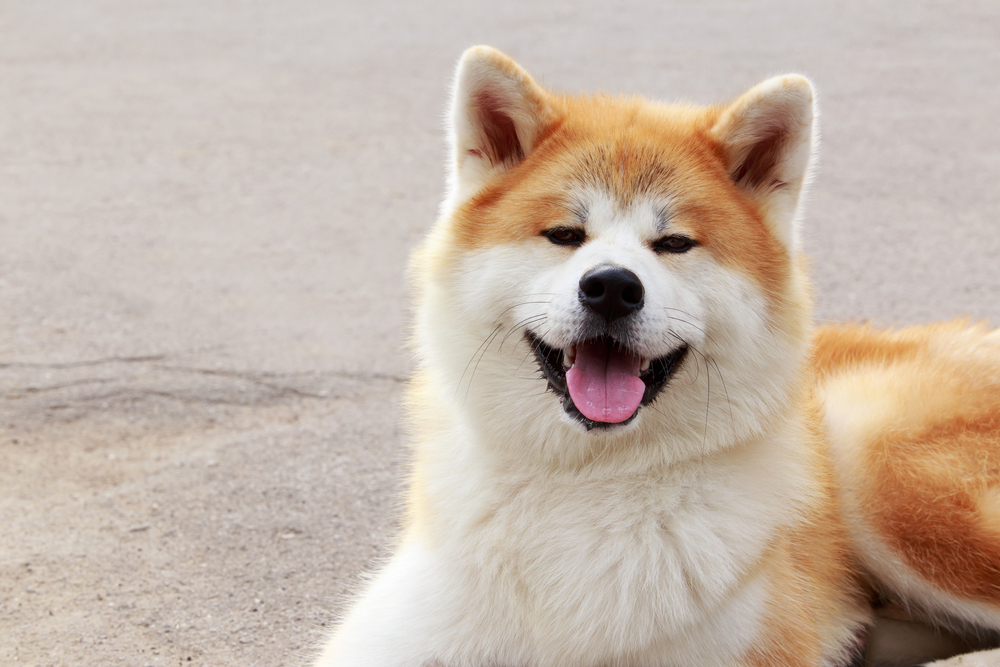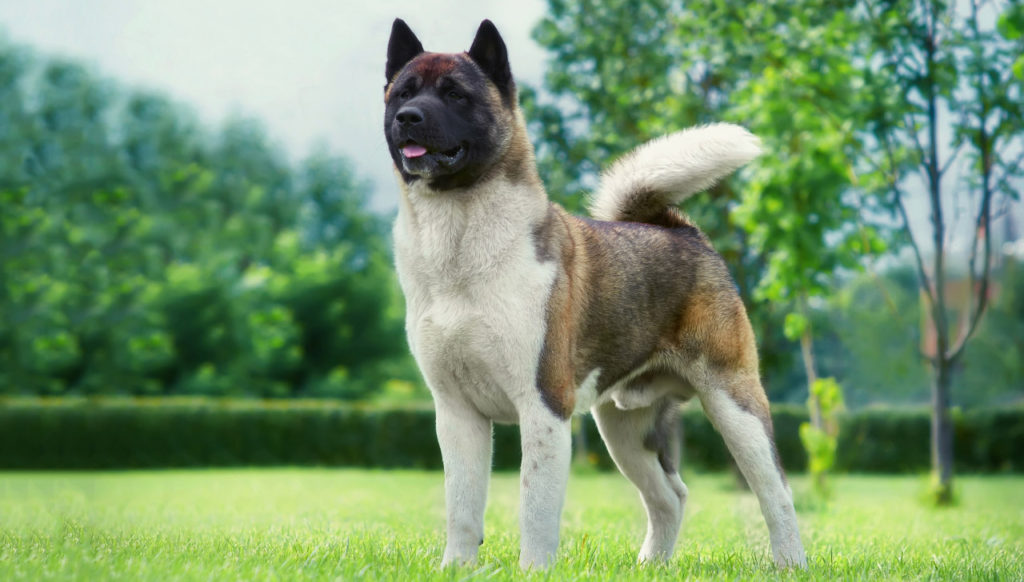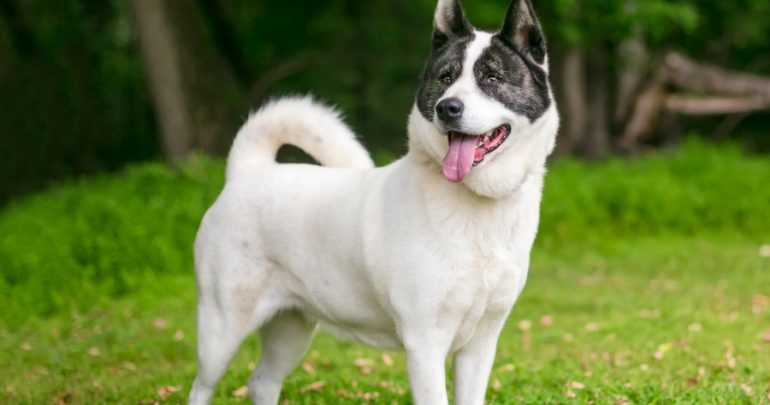The Akita is a large breed of dog originating from the mountainous regions of northern Japan.
There are two separate varieties of Akita:
1. Japanese strain, commonly called Akita Inu (Inu means dog in Japanese) or Japanese Akita.
The Japanese strain comes in a narrow palette of colours, with all other colours considered atypical of the breed.
2. American strain, known as the Akita or American Akita, While the American strain comes in all dog colours.
The Akita has a short double-coat similar to many other northern spitz breeds such as the German Shepherd or Siberian Husky, but long-coated dogs can also be found in many litters due to a recessive gene.
The Akita is a powerful, independent and dominant breed, commonly aloof with strangers but affectionate with family members. As a breed.
In all countries except the United States, the Japanese and American strains of Akita are considered two separate breeds. In the United States, however, the two strains are considered a single breed with differences in type. For a while, the American strain of Akita was known in some countries as the Great Japanese Dog. Both forms of Akita are probably best known worldwide from the true story of Hachikō, a loyal Akita who lived in Japan before World War II.

Appearance
As a spitz breed, the appearance of the Akita reflects cold weather adaptations essential to their original function. The Akita is a substantial breed for its height with heavy bones. Characteristic physical traits of the breed include a large, bear-like head with erect, triangular ears set at a slight angle following the arch of the neck.
Additionally, the eyes of the Akita are small, dark, deeply set and triangular. Akitas have thick double coats, and tight, well knuckled cat-like feet. Their tails are carried over the top of the back in a gentle or double curl down the loin.
Mature American type males measure typically 26-28 inches at the withers and weigh between 100-130 lb. Mature females typically measure 24-26 inches and weigh between 70-100 lb. The Japanese type, as stated in the breed standards, are a little smaller and lighter.
Breed standards state that all dog breed coat colors are allowable in the
American Akita, including pinto, all types of brindle, solid white, black mask, white mask, self-coloured mask, even differing colours of undercoat and overlay (guard hairs). This includes the common Shiba Inu colouring pattern known as Urajiro.
The Japanese Akitas, as per the breed standards, are restricted to red, fawn, sesame, brindle, pure white, all with Urajiro markings whitish coat on the sides of the muzzle, on the cheeks, on the underside of jaw, neck, chest, body and tail and the inside of the legs.

Working life
Predecessors of the modern Akita were used for hunting bear, wild boar and deer in Japan as late as 1957. They would be used to flush out the bear and keep it at bay until the hunter could come and kill it. Today, the breed is used primarily as a companion dog. However, the breed is currently also known to be used as therapy dogs, and compete in all dog competitions including: conformation showing, obedience trials, canine good citizen program, tracking trials and agility competition, as well as weight pulling, hunting and Schutzhund (personal protection dogs).

this is an interesting tips about Akita dog.